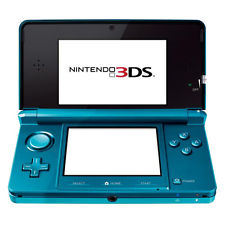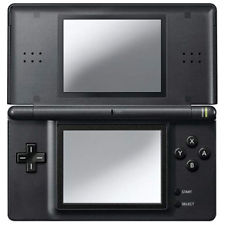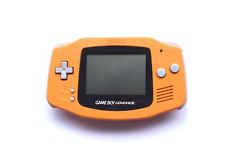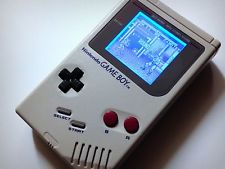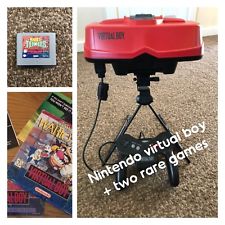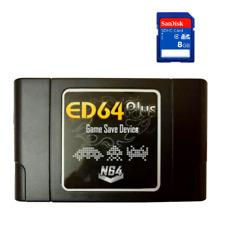|
May 30th, 2007, 21:13 Posted By: Triv1um
(VERY long read)
Via Canada.com
The stratospheric rise of Nintendo's latest gaming system has been nothing shy of Wii-markable, flattening Sony's PS3 and charging after Microsoft's Xbox 360.
The company is thriving in markets around the world. The Wii was the top-selling console system in Canada, the Nintendo DS handheld was the top-selling portable gaming system, and Nintendo held the top four spots for games (Pokemon Diamond Version DS, Pokemon Pearl Version DS, Wii Play, and Super Paper Mario for Wii) for the period of April 8 to May 5, according to the latest Canadian figures released by independent market researchers NPD Group Inc.
Nintendo boasted the same achievements in the United States while in France the 15 top-selling games are all for Nintendo systems.
"We're ecstatic over the explosive appeal of Wii and Nintendo DS," said vice president and general manager of Nintendo of Canada Ron Bertram.
At the November 2006 launch of the Wii in Toronto, Bertram anticipated good things for the console and hoped for "a strong second place" showing. The actual success is beyond anyone's expectations. In less than five months since introduction, the company has sold six million Wii systems globally and nearly 29 million Wii games. The console has taken a step toward becoming a cultural phenomenon.
"Wii is selling out everything we put into the marketplace," said Reggie Fils-Aime, president and CEO of Nintendo of America, speaking at a conference in Seattle on May 22 to announce sales achievements and upcoming games for the company.
Sony's PS3, which launched about the same time as the Wii, has sold just 1.84 million units worldwide, while Microsoft has sold more than 10 million Xbox 360 consoles worldwide. The 360, launched in November 2005, had a year head-start over the others. Nintendo now expects to have sold 14 million Wiis by the end of its first fiscal year, March 2008, and has ramped up production to meet the demand.
In comparison, about 22 million GameCubes have been sold since its launch in November 2001. Sony's PS2, which launched in October 2000, has sold more than 106 million units around the world but there is now debate over whether Sony can maintain its dominance over the industry.
The reason for Nintendo's rise is its approach to new consumers and giving them something different, said Fils-Aime.
With its innovative motion-sensing controller, Wii gamers get as close to the action as possible. Players swing the controller like a baseball bat or golf club, leap around their living rooms to make a backhand return in tennis, jab madly away at the air in a boxing bout, and point it at the screen to aim their weapons. Sitting on the couch and pressing buttons just doesn't cut it anymore.
The Wii remote controller is also simple to use. It's based more on gestures than button combinations, so there are very few gadgets on it, making it less intimidating to people who've never played games before.
Nintendo has also taken aim at non-gamers with titles that veer away from the shooters and racers that appeal to males aged 18 to 35.
The game plan is based on the book Blue Ocean Strategy, which suggests that with too many companies fighting for the same consumers, no one can truly grow.
Tomorrow's leading companies will succeed not by battling competitors, the book's authors argue, but by creating "blue oceans" of uncontested market space. In terms of video games, those oceans are teeming with females, seniors and 40- to 50-year-old businessmen.
"We're not just competing with Sony and Microsoft anymore. We're competing with movies and other leisure activities," said Fils-Aime.
Nintendo began feeding non-gamers with Nintendogs, a non-competitive and quirky game that requires people to adopt, care for, and raise a computerized canine companion. It has since put out a series of puzzle games, and a collection of mentally stimulating mini-games to test thinking, memorization, analysis, identification and computation.
Consequently, "the market is changing in unprecedented ways," said Fils-Aime. "There's no question consumers are picking up a controller who've never played before. And these games are becoming a part of everyday life for many of them."
Recent data shows an increase of 127 per cent in people 35 years old and up purchasing a DS device, for which most of the brain games have been produced. The female contingent in that is up 42 per cent.
Another 16 per cent of men over 50 report they play games regularly, while 10 per cent of women over 50 are also regular users.
The pattern of consumers purchasing video games is also changing. Sales usually slump right after Christmas and flat-line through spring and summer.
Instead, Wii and DS sales in January 2007 were nearly 50 per cent of the Christmas rush. The DS actually sold out of stock.
"To witness such incredible demand during a traditionally slow sales period is solid proof that Canadians have embraced Nintendo's vision of what video gaming can be," noted Bertram. "Our goal of expanding the market to include players of all ages and levels of experience with fun, pick-up-and-play systems and games continues to be a resounding success."
More brain training games will be rolled out over the next few months, for both the DS and Wii. The core gamers are not being forgotten, either, with the release of Mario Strikers Charged, Mario Party 8, Metroid Prime 3: Corruption, and Battalion Wars 2. There are more than 40 titles in all genres coming out between June and September.
"Whether you're a hard core gamer or a first time player, it all boils down to fun," said Fils-Aime.
For more information and downloads, click here!
 There are 3 comments - Join In and Discuss Here There are 3 comments - Join In and Discuss Here
|
|
 NES
NES





